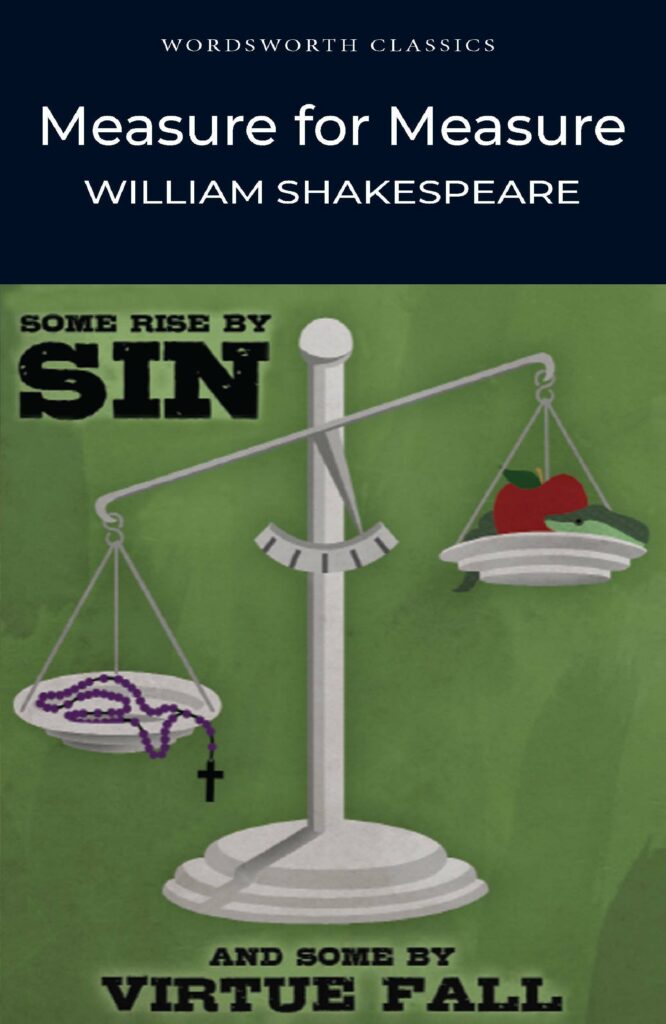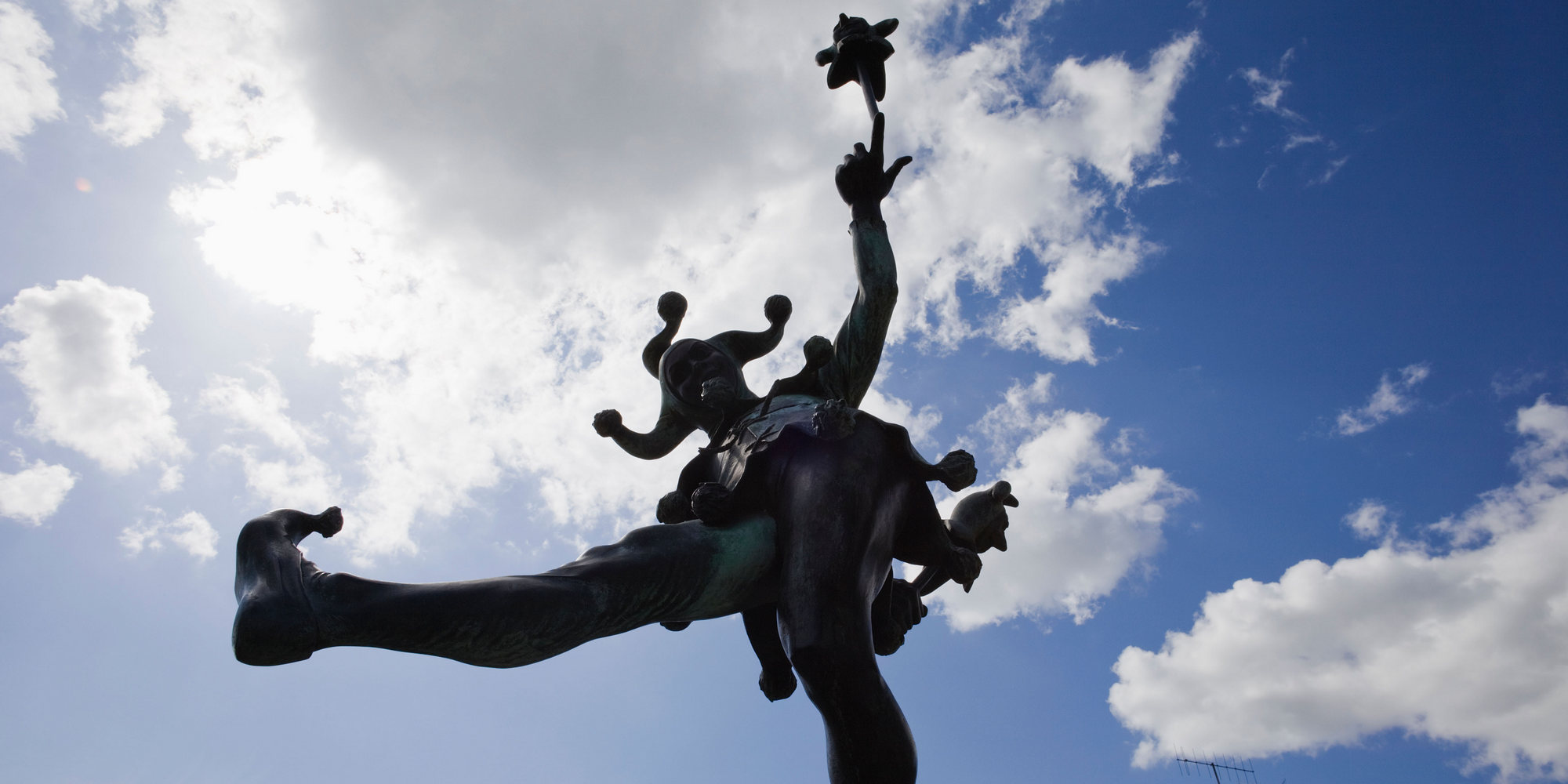
Shakespeare’s Titles
David Ellis finds fault with ‘The Swan of Avon’ Shakespeare’s Titles
As anyone who has ever put pen to paper will know, finding titles for what you have written can be difficult. Reading a book on Shakespeare’s treatment of old age I was struck recently by the felicity of its title. The author had taken a phrase from Antony and Cleopatra and called his work Wrinkled Deep in Time. Envious of this find, and wanting something for a more general work on old age and literature with which I was struggling, I thought of that speech in which King Lear announces his retirement and says that all he wants to do from then on is `crawl towards death’. When I suggested to a friend that Crawling Towards Death might be an appropriate title to describe what I was writing, he nodded an ironical approval and commented on how quickly a title like that was likely to make the book disappear from the shelves.
Perhaps it was pique that made me then feel that the greatest writer of English the world has ever known was after all not very good at titles. It is true that when it comes to the tragedies or histories his are at least informative and it is therefore no surprise to discover who the central characters of Richard III or Macbeth are; but this way of characterising a work is not especially imaginative and it is repeated so often that it could be described as dull and unenticing. How would anyone unfamiliar with English literature, for example, know that Henry IV Part Two refers to one of the greatest and most enthralling plays ever written (not that Part One isn’t enthralling also)?
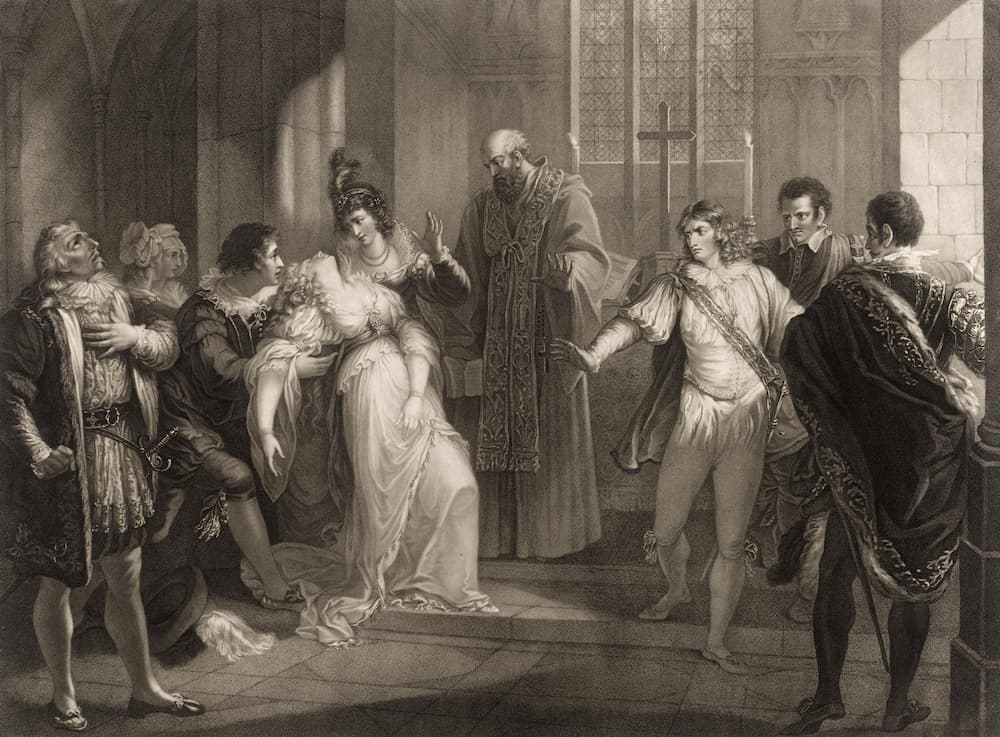 But it is with the comedies that inadequacy is more acutely felt. A prime example here would be As You Like It which is a title that has nothing at all to say about why Rosalind and Celia had to leave the Court and what then happened to them in the Forest of Arden. It as if Shakespeare, looking around for something to call his new play, grew impatient, threw his copy on the floor and said: `Call it what you damn well please’. The problem with Much Ado about Nothing is not quite the same. The central action in this play concerns an innocent young girl who is courted by a powerful aristocrat. At the very public moment of her marriage, she is accused by the man she imagines is going to be her future husband of being no better than a common prostitute, a `rotten orange’. Being a comedy, everything in this play does of course come right in the end, but the details of Hero’s humiliation are dramatized with such power that it is hard to clear them entirely from the mind. For her at least, the episodes in which she is involved are hardly much ado about nothing.
But it is with the comedies that inadequacy is more acutely felt. A prime example here would be As You Like It which is a title that has nothing at all to say about why Rosalind and Celia had to leave the Court and what then happened to them in the Forest of Arden. It as if Shakespeare, looking around for something to call his new play, grew impatient, threw his copy on the floor and said: `Call it what you damn well please’. The problem with Much Ado about Nothing is not quite the same. The central action in this play concerns an innocent young girl who is courted by a powerful aristocrat. At the very public moment of her marriage, she is accused by the man she imagines is going to be her future husband of being no better than a common prostitute, a `rotten orange’. Being a comedy, everything in this play does of course come right in the end, but the details of Hero’s humiliation are dramatized with such power that it is hard to clear them entirely from the mind. For her at least, the episodes in which she is involved are hardly much ado about nothing.
A Midsummer Night’s Dream is an apt enough description of a play most of which takes place during a single night in the magical atmosphere of a wood where a good deal of dreaming does in fact go on. It is a superb work but not quite so impressive, in my view, as Twelfth Night. These last two words will trigger immediately in the minds of most literary people the gulling of Malvolio, the splendid double act that is Sir Toby and Sir Andrew, or Olivia’s charming exchanges with the disguised Viola. But that is because they already know the play. Scholars have conjectured that it is called Twelfth Night because that is the holiday occasion for which the play was written and first performed; but it is hard to imagine why anyone should want to do that or think of any other similar case. Perhaps there is more of a clue to the enigma Twelfth Night represents in its subtitle which is of course `or what you will’ and very much from the `as you like it’ or I don’t give a damn school.
Whereas Twelfth Night is simply baffling, the titles of two of Shakespeare’s later comedies could rather be described as challenges to the critical intelligence of their readers or spectators. There is a kind of folk wisdom in the idea that if things end happily then all the misfortunes which went before do not matter very much yet it is hard not to feel uneasy when, at the end of All’s Well That Ends Well, Helena finally secures her Bertram. He is a count and she only a doctor’s daughter so that in one sense she has done very well for herself; but throughout the play he has been revealed as not only a snob but such an altogether nasty piece of work that it is difficult not to wonder whether he deserves Helena, and all has in fact ended as well as it is supposed to do in comedies.
 There are similar, often expressed worries about the ending of Measure for Measure. I take these words to mean something in the region of tit for tat, each according to their desserts or, more biblically, an eye for an eye. As is sometimes the case with titles, this one occurs in the play itself where the expression is represented as the equivalent of `like doth quit like’. But if this is indeed their general meaning, then the measures finally meted out in this play can seem very unequal. Lucio is certainly a reprobate but his principal crime seems to have been to have made outrageous claims about the Duke of Vienna’s character to a disguised figure whom he does not recognise as the Duke himself. He is initially condemned to marry a prostitute he has made pregnant before being whipped and then hanged. The second part of this sentence is quickly rescinded so that all that is left is being compelled to marry but this is more punishment than any received by Barnardine, the hardened criminal who gets off scot free and is a peculiarly striking illustration of what Dr Johnson once called `stark insensibility’. Yet it is of course among the principals that measure for measure appears to operate most unevenly. Marianna is like Helena in being contracted to a man who has abandoned her but who is then tricked into sleeping with his legal partner, nonetheless. That she should still want Angelo, even to the extent of pleading for his forgiveness, is likely to strike spectators as uncomfortable given what they have witnessed of his loathsome behaviour, but even more disturbing so is the way Isabella, whose burning ambition is to be a nun, looks like being nudged into a marriage with the Duke for which she will be expected to feel gratitude. It is a prize everything we have learnt about her in the play makes us feel she would not want, and hardly a convincing case therefore of measure for measure: her young woman’s fierce virtue in exchange for his rank. Shakespeare’s Plays
There are similar, often expressed worries about the ending of Measure for Measure. I take these words to mean something in the region of tit for tat, each according to their desserts or, more biblically, an eye for an eye. As is sometimes the case with titles, this one occurs in the play itself where the expression is represented as the equivalent of `like doth quit like’. But if this is indeed their general meaning, then the measures finally meted out in this play can seem very unequal. Lucio is certainly a reprobate but his principal crime seems to have been to have made outrageous claims about the Duke of Vienna’s character to a disguised figure whom he does not recognise as the Duke himself. He is initially condemned to marry a prostitute he has made pregnant before being whipped and then hanged. The second part of this sentence is quickly rescinded so that all that is left is being compelled to marry but this is more punishment than any received by Barnardine, the hardened criminal who gets off scot free and is a peculiarly striking illustration of what Dr Johnson once called `stark insensibility’. Yet it is of course among the principals that measure for measure appears to operate most unevenly. Marianna is like Helena in being contracted to a man who has abandoned her but who is then tricked into sleeping with his legal partner, nonetheless. That she should still want Angelo, even to the extent of pleading for his forgiveness, is likely to strike spectators as uncomfortable given what they have witnessed of his loathsome behaviour, but even more disturbing so is the way Isabella, whose burning ambition is to be a nun, looks like being nudged into a marriage with the Duke for which she will be expected to feel gratitude. It is a prize everything we have learnt about her in the play makes us feel she would not want, and hardly a convincing case therefore of measure for measure: her young woman’s fierce virtue in exchange for his rank. Shakespeare’s Plays
Very few of Shakespeare’s comedies have titles that seem appropriate (why a winter’s tale and which part of that play’s action would it seem accurate to describe in this way?). We don’t of course know how much control he had over what his plays were called, either when they being advertised at the theatre or then published (some of them) in those famous `quarto’ versions. Perhaps the prestige of his theatre company, or his own, was enough to drum up a public whatever name their offerings bore? It is nevertheless interesting to speculate that even a literary genius, and someone whose writings have since been a valuable resource for those looking for titles for their own work (Wrinkled Deep in Time being only one example among many) should have suffered the same problems so many other writers have had in trying to decide what to call their work. One can follow that painful process in the early letters of D. H. Lawrence. It is perhaps only from them that one can discover why his first novel should have been called The White Peacock and his second, The Trespasser, since the works themselves provide only minimal information on that score. For a long period, he followed the Macbeth route and called his third novel Paul Morel, which is the name of its principal character; but then he discovered Freud and changed the title to Sons and Lovers which, for once in a writer’s life, hit the nail firmly on the head.
Main image: Statue of Touchstone, the Jester from As You Like It, Stratford-upon-Avon Credit: Steve Vidler / Alamy Stock Photo
Image 1 above: Much Ado About Nothing. Credit: Interfoto / Alamy Stock Photo
Image 2 above: Twelfth Night. Credit: 19th era / Alamy Stock Photo
Our full selection of Shakespeare titles can be found here
For more information about Shakespeare, visit: The British Shakespeare Association
Books associated with this article
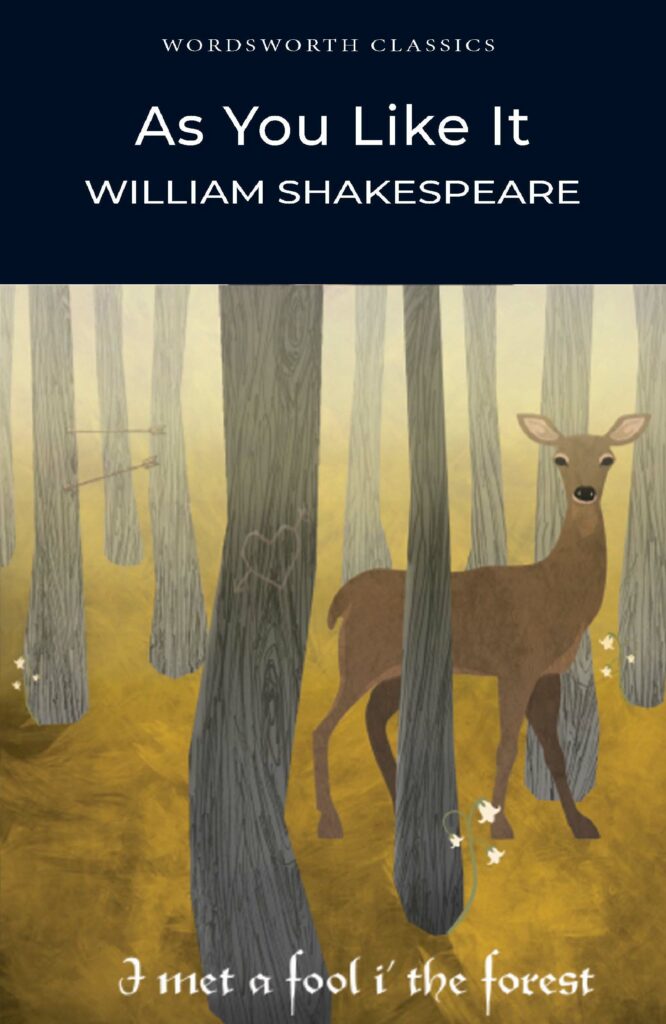
As You Like It
William Shakespeare
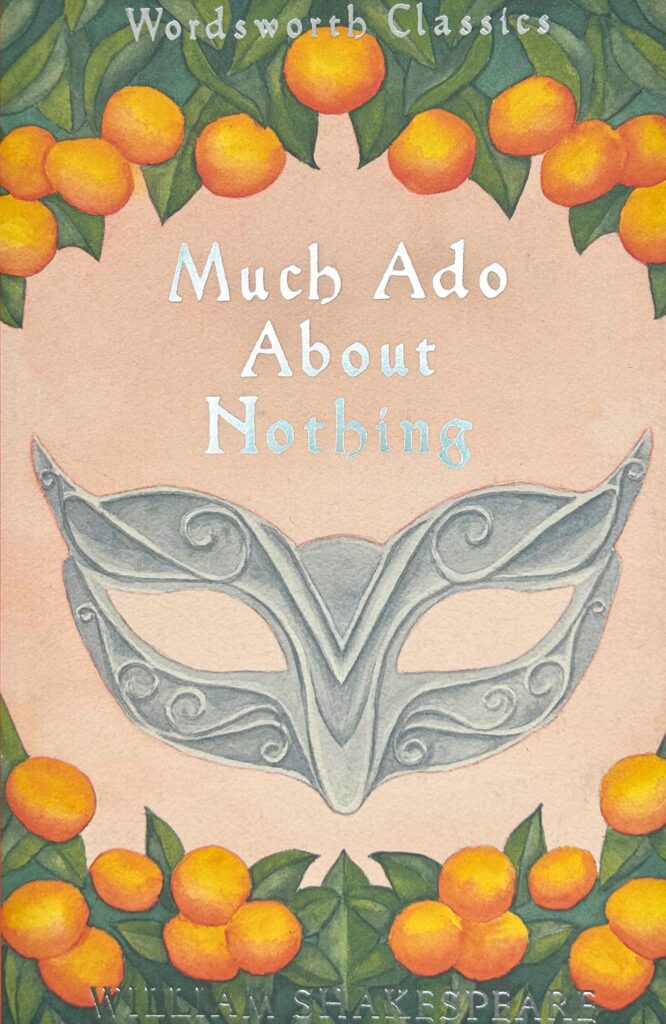
Much Ado About Nothing
William Shakespeare
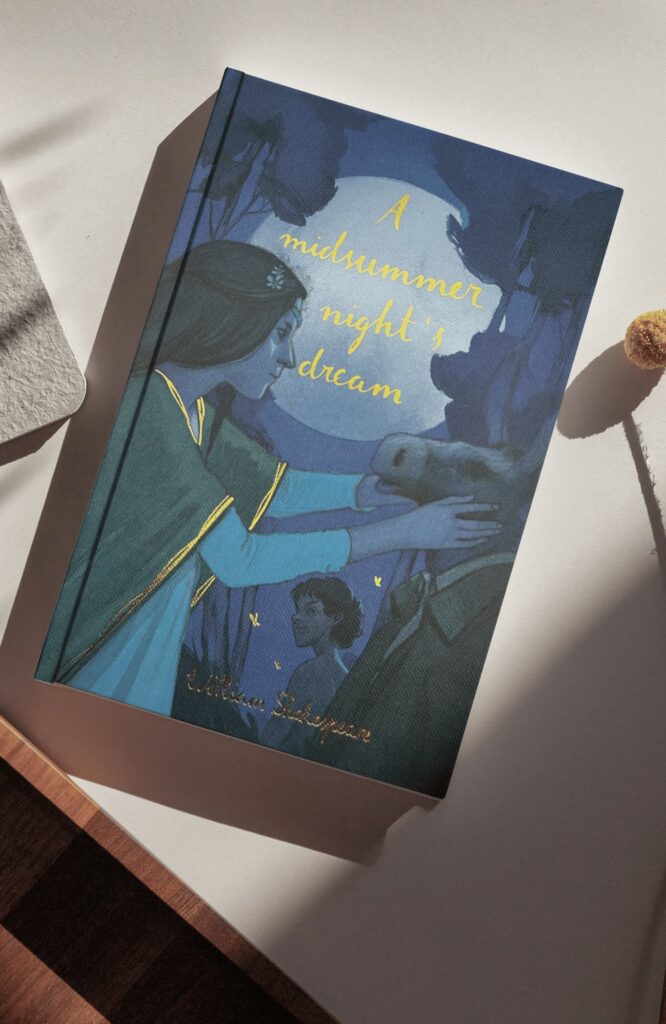
A Midsummer Night’s Dream (Collector’s Edition)
William Shakespeare
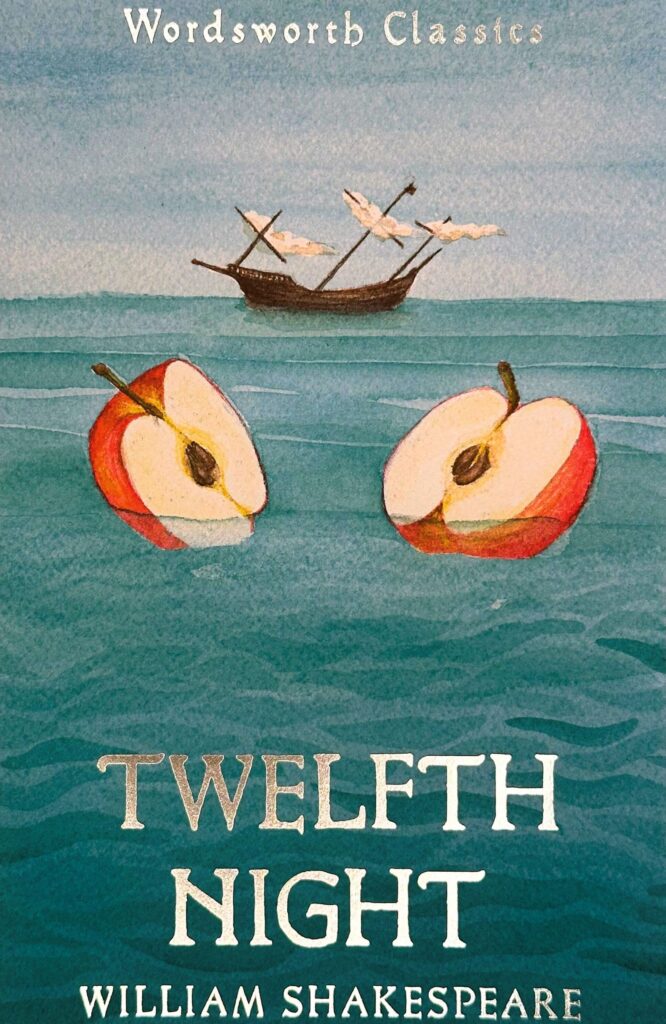
Twelfth Night
William Shakespeare
